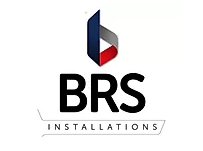UK PAYE Tax Codes Explained: How to Avoid Common Errors
- December 2024
- 5 minutes
Understanding tax codes is essential for ensuring you pay the right amount of tax under the UK PAYE (Pay As You Earn) system. Tax codes directly affect how much money is deducted from your wages or pension. This guide explains how tax codes work, common pitfalls to watch out for, and what to do if something goes wrong.
 What Are PAYE Tax Codes?
What Are PAYE Tax Codes?
A tax code is a combination of numbers and letters used by HMRC to indicate how much tax-free allowance you are entitled to. Employers and pension providers use this code to calculate the correct amount of tax to deduct from your income.
For instance, the tax code 1257L is the most common for the 2023/24 tax year. It reflects the standard personal allowance of £12,570.
 How Are PAYE Tax Codes Calculated?
How Are PAYE Tax Codes Calculated?
Your tax code is based on:
- Your Personal Allowance: The amount you can earn tax-free annually.
- Additional Income: Such as rental income or dividends.
- Tax Reliefs or Deductions: For expenses like professional subscriptions or charitable donations.
 Common PAYE Tax Codes and Their Meanings
Common PAYE Tax Codes and Their Meanings
Here’s a breakdown of some common tax codes:
- 1257L: Standard personal allowance for most taxpayers.
- K Codes: Indicate tax is owed from benefits or underpayments.
- BR: Basic rate (20%) applied to all income, typically for second jobs.
- 0T: No tax-free allowance applied, often used for new employees.
- D0/D1: Higher rate (40%) or additional rate (45%) applied to all income.
- NT: No tax deducted, usually for non-taxable income.
 Things to Watch Out For
Things to Watch Out For
Many people fail to notice errors in their tax codes, leading to overpayment or underpayment. Here are some common mistakes to avoid:
1. Incorrect Tax Code Assignment
- A wrong tax code can result in paying too much or too little tax.
- Example: If you have multiple jobs and both are assigned the 1257L code, you may underpay tax.
2. Failing to Update Changes in Circumstances
- Life events such as starting a new job, receiving benefits-in-kind, or getting married can impact your tax code.
3. Assuming HMRC Automatically Adjusts
- HMRC relies on timely updates. If you don’t notify them of changes, your tax code may remain outdated.
 Tips to Avoid Tax Code Issues
Tips to Avoid Tax Code Issues
- Notify HMRC Promptly: Report any change in income or circumstances as soon as possible.
- Claim Tax Relief: Don’t forget to claim reliefs for work-related expenses or charity donations.
- Use a Professional Accountant: If your situation is complex, for example if you are high earner, multiple sources of income or receive work related benefits including shares (RSUs ESPP) – An accountant can ensure your tax code is accurate or managed correctly.
 FAQs
FAQs
1. What should I do if I’ve overpaid tax?
If you’ve overpaid tax, HMRC will usually issue a refund. You can also contact them directly to expedite the process.
2. What happens if my tax code is wrong?
An incorrect tax code could lead to underpayment or overpayment. Notify HMRC immediately to correct it.
3. How often are tax codes updated?
Tax codes are updated annually, but they can change mid-year if your circumstances change.
4. Why does my tax code have the letter ‘K’?
A ‘K’ code means deductions exceed your allowance. You’ll pay tax on all income, plus additional amounts owed.
5. Can I challenge my tax code?
Yes, you can challenge your tax code by contacting HMRC with evidence of the error.
Optimising your tax code ensures you only pay what’s necessary. By staying informed and proactive, you can avoid costly mistakes. For tailored advice, consider consulting a professional accountant.
 Appoint TaxQube to manage your taxes
Appoint TaxQube to manage your taxes
We help taxpayers in the UK to ensure compliance with HMRC – It is a legal responsibility. If you need help in submitting your Tax reports or accounts preparation, please do feel free to get in touch with us by completing the contact us form.































